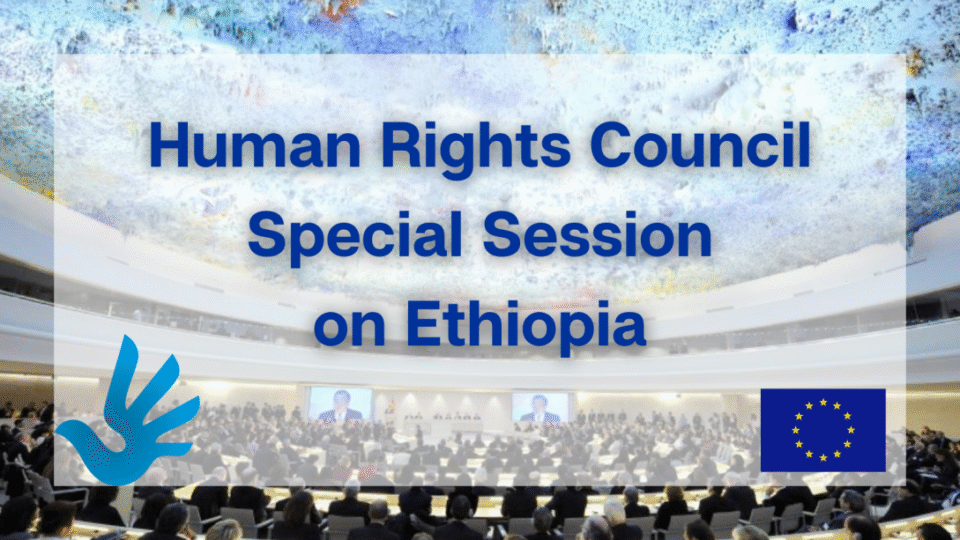By Muluken Tekleyohanes, for Ambassador Media
The joint statement delivered in Geneva by 42 nations is more than a diplomatic note—it is a damning report card on Ethiopia’s deliberate sabotage of human rights and transitional justice. For too long, Addis Ababa has hidden behind hollow promises while committing abuses in plain sight. Now, the world is putting those failures on record.
The report highlights several alarming realities. It documents restrictions on freedom of expression, assembly, and association—fundamental rights that are the lifeblood of democracy. It expresses regret over the closure of civic space, where journalists, civil society organizations, and human rights defenders face harassment, intimidation, and sanctions for simply doing their jobs. It warns of escalating repression ahead of Ethiopia’s national elections, expected within ten months, making clear that these elections risk being neither free nor fair.
These are not abstract concerns—they are patterns of abuse. They are the daily lived experience of Ethiopians who are silenced, threatened, and denied justice. The report also underlines the regime’s refusal to make progress on its so-called “transitional justice” process, which has stalled to the point of collapse. Instead of confronting past crimes, the government is burying them. Instead of reconciliation, it offers denial.
And what is the government’s response? To dismiss this carefully documented international concern as “selective political content and one-sided malicious intent.” This language exposes the truth: Ethiopia’s leaders are not interested in reform. They are interested in power—at any cost.
We must stop pretending that words alone will move this regime. The Ethiopian government has chosen repression over reform. It must now face consequences.
The international community must escalate its response:
- Sanctions on those responsible for abuses—both political leaders and security officials.
- An arms embargo to stop weapons from being used against civilians.
- Aid conditionality, so that international funds do not bankroll the machinery of repression.
- A UN-mandated independent investigation into the intimidation, threats, and killings documented in the report—so perpetrators face justice, not impunity.
This joint report proves that Ethiopia’s crisis is not an internal matter, as the regime claims—it is a global concern. The EU and its allies have placed the truth on the record. Now they must act.
The Ethiopian people deserve more than sympathy. They deserve solidarity, action, and justice. The question facing the EU, the UN, and the international community is simple: Will you allow Ethiopia’s rulers to bury justice and silence democracy, or will you finally stand with the people who are demanding change?
Enough excuses. Enough delay. The world has the evidence—it is time for consequences.

An Urgent Call for International Intervention in Ethiopia